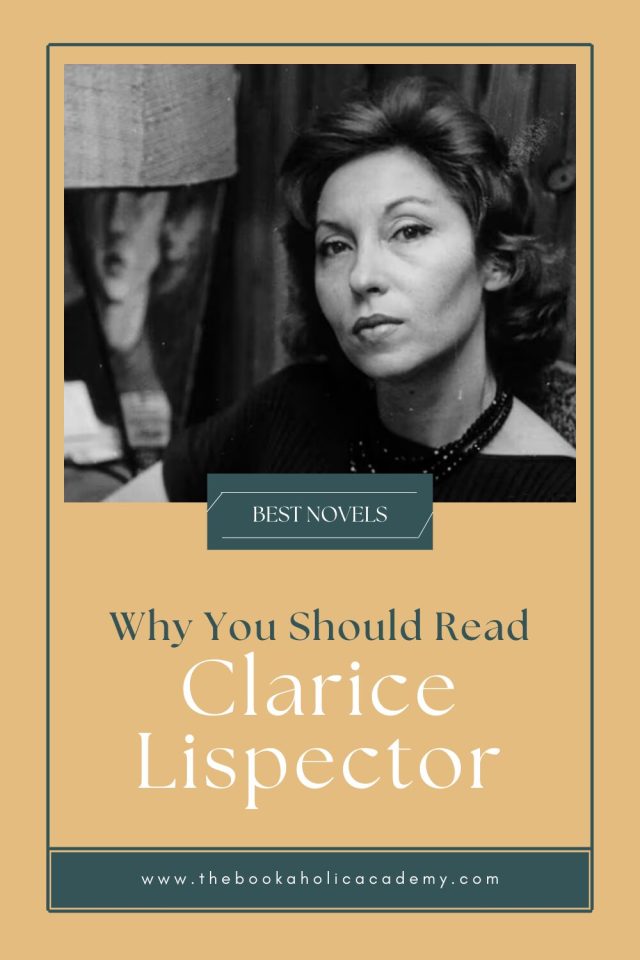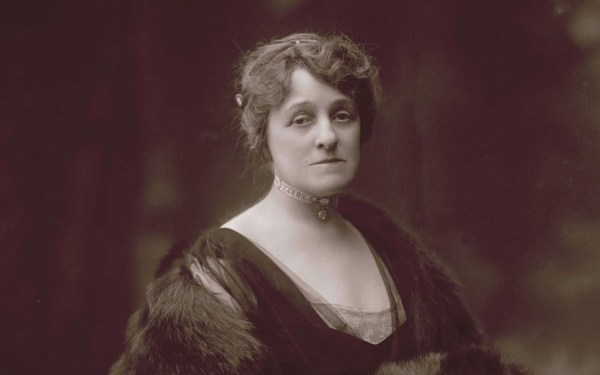Why You Should Read Clarice Lispector: Her Best Novels

Disclaimer
This post may contain affiliate links. I will make a small commission if you make a purchase through one of these links, at no extra cost to you. See full disclosure and disclaimer policy HERE.
If you’re seeking an enigmatic literary journey that will challenge your perceptions and stir your soul, look no further than the works of Clarice Lispector. This Brazilian literary icon has left an indelible mark on the world of literature with her profound insights, lyrical prose, and unparalleled ability to delve into the depths of human existence. In this article, we’ll explore why delving into Lispector’s captivating narratives can be a transformative experience.
Table of Contents
- Who Was Clarice Lispector?
- Discovering The Depths Of Human Experience
- Embracing The Power Of Language
- Expanding Your Literary Horizons
- Most Notable Novels
- Connecting With a Literary Icon
- Conclusion
- FAQs
Who Was Clarice Lispector?
Clarice Lispector was a Brazilian writer born on December 10, 1920, in Chechelnyk, Ukraine, and died on December 9, 1977, in Rio de Janeiro, Brazil. She is widely regarded as one of the most important figures in Brazilian literature and a significant voice in 20th-century literature as a whole.
Lispector’s family emigrated to Brazil when she was just an infant, fleeing the pogroms in Ukraine. Growing up in Recife and later moving to Rio de Janeiro, Lispector experienced a diverse cultural upbringing that greatly influenced her writing.
Lispector’s literary career began in the 1940s when she worked as a journalist and published her first novel, “Near to the Wild Heart,” in 1943. This debut novel immediately garnered attention for its innovative narrative style and existential themes, earning Lispector critical acclaim and establishing her as a literary force to be reckoned with.
Throughout her career, Lispector continued to push the boundaries of literature, experimenting with language, narrative structure, and philosophical inquiry.
Her works often explore themes such as identity, consciousness, existentialism, and the human condition. Lispector’s writing is characterised by its poetic prose, introspective depth, and philosophical underpinnings.
Lispector’s literary legacy extends beyond Brazil, with her works being translated into numerous languages and gaining recognition worldwide. Her influence on literature and culture continues to be felt to this day, cementing her status as one of the most important literary figures of the 20th century.
RELATED:
The Best Latin American Literature Books Of All Times
Discovering The Depths Of Human Experience
Reading Lispector is like embarking on a journey into the heart of human consciousness. Her works are imbued with a sense of existential questioning, inviting readers to contemplate the mysteries of existence alongside her characters.
Whether she’s exploring the complexities of identity, the nature of reality, or the elusive concept of time, Lispector’s writing resonates on a deeply human level, touching upon universal themes that transcend cultural boundaries.
Embracing The Power Of Language
One of Lispector’s greatest strengths lies in her mastery of language. Her prose is both poetic and precise, weaving together words with an almost hypnotic elegance. Through her innovative use of language, she challenges conventional narrative structures, inviting readers to question the boundaries of storytelling itself.
Reading Lispector is not merely an act of consuming literature but rather a visceral experience of immersion in the power of language to shape our understanding of the world.
Expanding Your Literary Horizons
In a world inundated with mainstream literature, exploring the works of Clarice Lispector offers a refreshing departure from the ordinary. Her writing defies categorisation, transcending traditional genres and conventions.
Whether you’re a seasoned literary aficionado or a casual reader looking for something new, delving into Lispector’s oeuvre promises a unique and rewarding experience that will expand your literary horizons and challenge your preconceptions.
Most Notable Novels
Clarice Lispector is celebrated for her unique and thought-provoking novels, each offering a glimpse into the complexities of human existence. While opinions on her best novels may vary among readers and critics, several works stand out as particularly noteworthy:
Near to the Wild Heart (Perto do Coração Selvagem, 1943)
Lispector’s debut novel immediately captivated readers with its lyrical prose and introspective exploration of the inner life of its protagonist, Joana. The novel delves into themes of identity, alienation, and the search for meaning, establishing Lispector as a literary trailblazer.
The Passion According to G.H. (A Paixão Segundo G.H., 1964)
Regarded as one of Lispector’s masterpieces, this enigmatic novel follows a wealthy woman known only as G.H. as she grapples with existential questions after a profound encounter with a cockroach in her maid’s room. The Passion According to G.H. is a deeply philosophical work that explores themes of self-discovery, spirituality, and the nature of reality.
The Hour of the Star (A Hora da Estrela, 1977)
Published shortly before her death, The Hour of the Star is a haunting and poignant meditation on poverty, identity, and the human condition. The novel tells the story of Macabéa, a young woman living in poverty in Rio de Janeiro, whose simple existence becomes a profound reflection on the complexities of life and the struggle for selfhood.
The Stream of Life (Água Viva, 1973)
Written in a stream-of-consciousness style, The Stream of Life is a lyrical and experimental work that blurs the boundaries between fiction and autobiography. In this introspective meditation, Lispector explores themes of creativity, existence, and the fluid nature of identity, inviting readers into a deeply personal journey of self-discovery.
These novels represent just a glimpse of Lispector’s literary brilliance, each offering a unique and profound exploration of the human experience. Whether delving into the depths of consciousness or grappling with the mysteries of existence, Lispector’s novels continue to resonate with readers around the world, cementing her legacy as one of the most important writers of the 20th century.
Connecting With a Literary Icon
Clarice Lispector’s influence extends far beyond the realm of literature. She remains a cultural icon whose legacy continues to inspire writers, artists, and thinkers around the world. By reading her works, you’re not only engaging with timeless literature but also forging a connection with a literary luminary whose impact reverberates through the ages.
Conclusion
In a world where superficial distractions abound, the works of Clarice Lispector offer a rare opportunity to pause, reflect, and delve into the depths of the human experience. Through her unparalleled mastery of language and her probing exploration of existential themes, Lispector invites readers on a journey of self-discovery and intellectual enrichment.
So why wait? Pick up a copy of Lispector’s work today and embark on an unforgettable literary odyssey.
FAQs
Did you like it? Pin this post for later!














